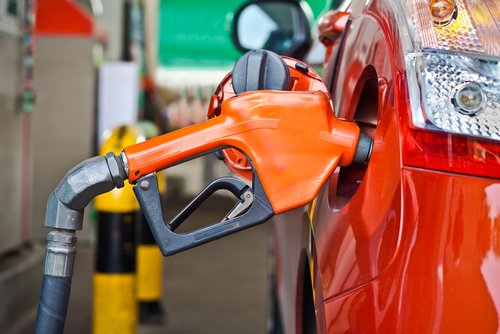GUWAHATI: Green fuels or alternative fuels, which help in complete combustion and reduce vehicular emissions and particulate matter, are encouraged by all stakeholders. Petrol dealers in Northeast India, however, have expressed reservations over the decision of the Indian Oil Corporation Ltd (IOCL) last month to roll out 10 percent ethanol-blended motor spirit (EBMS) across retail outlets of seven states in the region, with a 100 percent rollout in Guwahati.
This, despite IOCL’s assurance of cleaning the underground tanks and clearing water before the ethanol-mixed petrol is decanted therein. The blending of 10 percent ethanol in petrol in India, it may be noted, is a practice which is nearly two decades old now, and has been implemented across the country.
But implementation of the practice in Northeast India was held up owing to unavailability of sufficient quantity of ethanol.
The petroleum dealers here have now appealed to the Centre to direct oil marketing companies (OMCs) to comply with all requisite norms before dispensing ethanol-blended motor spirit (EBMS) across retail outlets in the region.
The Greater Guwahati unit of the North East India Petroleum Dealers’ Association (NEIPDA) has clarified, in no uncertain terms, that it has no objection to IOCL’s plan, provided the underground tanks of the retail outlets/oil depots are made water-free and an automated alert system put in place by the OMCs.
“There is a possibility of ethanol-mixed motor spirit getting contaminated after coming in contact with water (which might be present in the underground tanks), through seepage or owing to improper cleaning, and causing damage to the vehicles. This is the primary contention of the association,” NEIPDA president Rajiv Goswami clarified.
“The IOCL decision is based on the premise that the petrol pumps are fully automated, which is not true. We have appealed to Union minister of state for petroleum and natural gas and MPs from Assam to direct the OMCs to comply with all guidelines by taking prompt action to clean the tanks of the retail outlets,” Goswami said.
“The OMCs need to only ensure that the underground tanks are free from water but also guarantee zero water seepage into the tanks for the safety of the customers,” he added.
The association warned that the dealers would be compelled to boycott sale of ethanol-blended petrol if the OMCs impose such a sale without necessary compliance.
“Till OMCs clean up the underground tanks of all retail outlets to make the tanks free from water and ensure no fresh seepage of water and also activate the alarm system, which is supposed to be part of the process of automation as claimed by OMCs, “we will not be in a position to accept EBMS and be compelled to boycott selling such petrol,” Goswami said.
The association further appealed to make the automation alert in all retail outlets completely functional so that all due precautions are taken to avert any untoward incident in case the water content in the tank rises.
Flex fuel policy
Meanwhile, the All Assam Engineer’s Association (AAEA) on Saturday welcomed the latest initiative taken by the Union government in New Delhi and the state government in Dispur to encourage the use of green fuel in all kinds of automobiles.
The association urged the concerned authorities to launch a public awareness campaign about the alternative fuel for the benefit of automobile users across India.
It may be mentioned that Union road transport and highways minister Nitin Gadkari has been advocating use of ethanol-mixed fuel (mostly with petrol/gasoline) in vehicles.
Lately, the Union minister has asked the carmakers in the country to introduce flex-fuel engines on a large scale. He argued that the ethanol-mixed petrol would be cheaper and reduce the air-pollution drastically.
Currently, India spends around Rs 8 lakh crore annually for importing crude oil, gas and other petroleum products even as the Narendra Modi-led government has decided to reduce such imports by using ethanol, methanol, bio-diesel, compressed natural gas, green hydrogen, et al.
The optimum use of ethanol (also called ethyl alcohol or grain alcohol) in petrol-powered engines would financially benefit the farmers as the inflammable organic and colourless compound is prepared from the agricultural produce such as grain, sugarcane, hemp, molasses, potato, etc.
Presently, India has a maximum of 9 percent ethanol-blended petrol in use.
Ethanol (C2H5OH), a renewable fuel produced from biomass, burns in a cleaner way than petrol, which usually leaves a significant volume of toxic carbon-monoxide generated due to incomplete combustion of fuel in the air.
Moreover, the low-level blend such as 10 percent ethanol and 90 percent petrol can be used in conventional petrol engines. Increasing the percentage of ethanol content (above 20 percent), however, would need certain engine modifications.
“The Assam government should formulate a pragmatic flex-fuel policy so that local farmers get optimum benefits out of the initiative. We urge chief minister Himanta Biswa Sarma to take the lead with necessary inputs from agriculture scientists, qualified engineers and other stakeholders,” AAEA president Kailash Sarma said here.
A recent Niti Aayog report, ‘Roadmap of Ethanol Blending in India 2020-25’, says that ethanol blending offers significant advantages such as increase in research octane number (RON) of the blend, fuel embedded oxygen and higher flame speed.
“These properties of ethanol help in complete combustion and reduce vehicular emissions such as hydrocarbon, carbon monoxide and particulate matter,” the report said.






